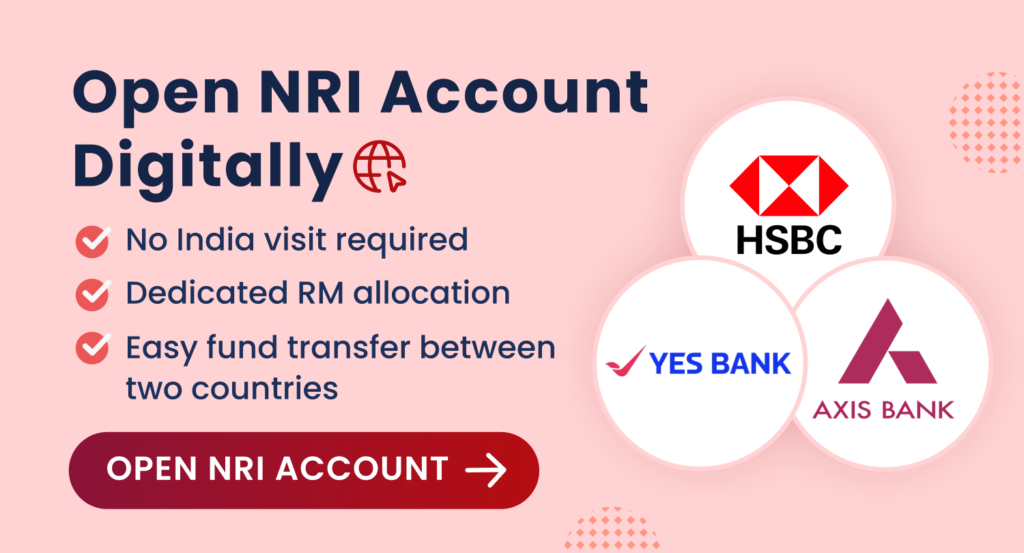
If you are an NRI returning to India permanently, this article is for you. We have assorted the top tips for NRI returning to India in 2023. In this article, we will understand the basics of how an NRI can smoothly transition to a Resident Indian and what are the various criteria that affect their NRI Status.
We will start with understanding who exactly is an NRI:
Who is an NRI?
Indian Citizens who have gone out or are staying abroad for the purpose of employment, business or vocation (occupation for which an individual is trained) or for some other purpose with an intention to stay outside India for an uncertain period are also termed as NRIs. [definition as per Foreign Exchange Management Act (FEMA)]
An NRI or Non Resident Indian is an Indian Citizen living outside India for a minimum of 183 days in 1 financial year (definition as per Income Tax Act)
Also read: 10 Best NRE Accounts in India for NRIs 2024: Online Application
NRI Returning to India: Status after returning
After returning to India, An NRI can become a resident. Now, there are two different definitions revolving around Residential Status we need to understand concerning an NRI returning to India. The terms we need to understand here are RNOR (Resident But Not Ordinarily Resident) and Resident and Ordinarily Resident.
NRI Returning to India: RNOR Status
The RNOR status is given to the Indian Residents. Certain criteria defines this status, which are:
- If the Individual has NOT been a resident in at least 2 out of the last 10 years
- If the Individual has been in India for a period of 729 days or less during the last 7 years
NRI Status Calculator
NRI status can be attained by an Indian Citizen if he/she stays overseas for more than 182 days in a financial year.
To calculate 182 days for your NRI status 2023 or for previous assessment years, you can visit the Indian Income Tax Department’s Residential Calculator page and calculate the number of days by providing the details of your stay in India.
Top 3 Tips for NRI Returning to India 2024
1. Know how long can you hold your RNOR Status
- If the NRI has been outside of India for 9 out of last 10 years, he/she can be an RNOR for 1 year
- If the NRI has been in India for 729 days or less in the last 7 financial years, he/she can be an RNOR for 3 years
2. Claim Tax Benefits
When we look at these terms from the perspective of taxation, then both NRI and RNOR status are the same. Now, another doubt can arise in the minds of the RNORs, “What are the benefits of having this status?”. Well, the similarity in the statuses also bring similarity in terms of benefits. Let us understand how:
What are the benefits of RNOR?
The benefit associated with being an RNOR is gifted in terms of taxation. For RNORs, the income that is generated outside India is not taxable in India. Taxes are only paid on the income generated in India.
Along with that other benefits can help RNORs save taxes in India, which are:
- They don’t have to pay taxes on the interest earned on Foreign Currency Non Resident (FCNR ) and Non Resident External (NRE) Deposits after converting them into Resident Foreign Currency (RFC) Accounts
- No taxes paid on withdrawals from offshore retirement accounts
- No taxes on rent and capital gains from abroad
- No taxes on interest on dividends received from investments done abroad
3. Wondering “Can I keep Fixed Deposits in India?” YES! You can.
NRIs often wonder what will happen if they opt for an NRE FD and then return to India? Check out the effects on your NRE Deposits post your return:
- The NRE Deposits need not be converted to resident accounts after your return to India. They can remain as-is till maturity while the NRI converts to a resident
- Withdrawals can only be done in Indian Rupees
- For NRE FDs broken before maturity, interest is calculated on the number of days the FD was held with the bank
- Premature breaking of NRE FDs are subject to penalties that vary from bank to bank
- Post maturity, NRE Deposit Accounts can be converted into Resident Foreign Currency (RFC) Accounts. All freely convertible currencies are allowed for RFC Accounts such as US Dollar, British Pound, Euro, Yen
- The interest will be payable at the original rate for deposits held for full term even after conversion to an Resident Foreign Currency (RFC) Account
- The interest earned on NRE Deposits that have been converted to RFC Accounts will be exempt from tax if the status of the returning NRI is RNOR (Resident but Nor Ordinarily Resident)
Looking to open NRI Account in India?

Here are the simple steps to apply for an online NRI account using the SBNRI app:
- Download the SBNRI app from either the Google Play Store or App Store.
- Log in to the app using your credentials.
- Tap on the “Open NRI account” button and choose the desired bank from the provided list.
- Utilize the in-app scanning feature to scan and upload your KYC documents.
- Finally, click on the “Apply” button, and your application will be submitted.
By following these steps, you can easily apply for an NRI account online using the user-friendly SBNRI app.
Contact SBNRI
SBI Bank operating outside India offers various banking and investment services to NRI retail and corporate customers and citizens, such as NRE/ NRO accounts, fixed deposits, loans and credit cards.
NRIs living in the above-mentioned countries can avail a variety of online financial services available in India, including NRO, NRE account opening, investment in India, tax filing, and a lot more. You can download SBNRI App to apply for an NRI account with nominal documentation in just 10 minutes.
You can also click on the button below to open an NRI account. Also visit our blog and Youtube Channel for more details.



